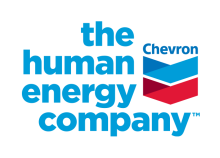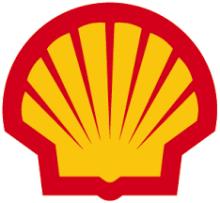55th Annual Loss Prevention Symposium (LPS)
The Loss Prevention Symposium (LPS) is one of several parallel symposia that comprise the Global Congress on Process Safety (GCPS). The purpose of the LPS conference is to present technological advances in process safety, explosion prevention, fire protection and lessons learned from incident investigations. LPS focuses on process safety technology – new developments, cutting-edge solutions, and innovative/novel approaches to hazard identification and risk assessment/management.
Topics for this conference includes:
- Fires, Explosions, and Chemical Reactivity
- Facility Siting, Consequence Analysis, and Risk Assessment
- Combustible Dust Hazards and Their Mitigation
- Extreme Weather and other External Events
- Engineered Safety System and Mitigation Technologies
- Emerging Topics and Technologies
- Cybersecurity
- Human Factors in Process Safety
- GCPS LNG Safety
- Case Histories
LPS Chair & Vice Chair:
-
Mike Moosemiller & Henry Dwight, LPS_chair@aiche.org
Session Topic Descriptions:
Fires, Explosions, and Chemical Reactivity
The analysis, prevention, protection, and mitigation of fires, explosions, and chemical reactivity hazards has always been important to the loss prevention community. This technical session invites papers on these process hazards, with a specific focus on new data, novel or cutting-edge approaches related to hazards identification/characterization, hazards assessment, and the development of safe designs and/or operational practices to manage the hazards.
Facility Siting, Consequence Analysis, and Risk Assessment
Consequence modeling, quantitative risk assessment techniques, and facility siting analyses are key tools applied by loss prevention professionals to understand and manage risk. Applications for these methodologies include capital projects, on-shore and off-shore facilities, pipelines, transportation, and emergency response. This session seeks papers describing recent advances and novel approaches to facility siting, consequence analysis, and quantitative risk analysis, as well as the integration and application of these tools and techniques into corporate risk assessment. Papers discussing best practices, case studies, and lessons learned are encouraged.
Combustible Dust Hazards and Their Mitigation
Dust explosion safety continues to be an area of interest and development for loss prevention professionals. This session is seeking papers presenting new data on dust hazards and their mitigation, including the development of new dust explosion prevention and protection techniques and standards
Extreme Weather and other External Events
Site risk assessments are typically based on potential events associated with incidents at the site itself. However, there is increasing attention being given to the impact on operations from external events, including extreme weather and other natural disasters (floods, earthquakes, etc.); sabotage (physical and cyber) from hostile entities; and hazardous events from neighboring facilities (fire, explosions, toxic releases etc.). Topics to be covered in this call for papers include, but are not limited to: prediction, modeling, layers of protection, and mitigation of consequences associated with such events, as well as ways to engage the broader community in planning for their occurrence.
Engineered Safety System and Mitigation Technologies
Many types of engineered systems are implemented to maintain safe operations and prevent adverse outcomes. Engineered safety systems and other mitigation technologies are diverse in their nature and function and may include mechanical pressure relief systems, automated response systems, or operator interfaces or passive mitigation such as drain systems or fireproofing. Their design, sizing, and reliability are hence of critical importance for the chemical process industries based on a relationship between the hazard and its prevention or mitigation. This session invites speakers to share their knowledge on new applications, best practices, case studies, and lessons learned.
Emerging Topics and Technologies
As the chemical processing industry evolves into the digital frontier, big data analytics and intelligent devices are transforming the way we do business and manage operational risks. Challenges faced in process safety now more than ever require innovative and multi-disciplinary approaches to problem solving that can turn complex data into actionable intelligence. We invite new research and industrial implementations of emerging technologies that have current and future implications to loss prevention in the chemical industry. This session covers a range of topics including advanced process decision-making, artificial intelligence, predictive analytics, machine learning, as well as robotics, drones, autonomous vehicles, smart devices, 3D printing and renewables energy systems (Hydrogen, Wind, Electric, etc). These next generation technologies will unlock our potential to bring science to safety.
Cybersecurity threats are an increasing concern for the chemical process industry, and it is critical to address this growing threat to protect the technology critical to safe operations of chemical facilities. This session will feature technical papers covering cybersecurity concepts, the current and future state-of-the-art, industry standards, cybersecurity hazard identification and risk assessment/management methods, ongoing research and experimentation, industrial case studies, and approaches to building cyber-resiliency into chemical processing operations.
Human Factors in Process Safety
Human factors involve designing machines, operations and work environments so that they match human capabilities, limitations, and needs. It is based on the study of operators, managers, maintenance staff, and other people in the work environment, and of the factors that generally influence humans in their relationship with a technical installation. These factors go beyond just basic ergonomics, human-machine interface, and occupational safety topics. This session intends to solicit new developments in implementing human factors into process safety management technology such as human reliability analysis, process hazard analysis, occupational discipline, and inherent safety.
This session is intended to gather papers related to LNG safety regulations, simulations, experiments, materials, and equipment utilized for LNG plant safety and protection. Topics on vapor dispersion exclusion zones, service life of materials at cryogenic conditions, modeling for LNG plant protection, etc. are of special interest.
GCPS Joint Session: Case Histories
Reviews of process safety incidents provide valuable learning opportunities. This session invites papers to help understand the causes and lessons learned from incidents in the industry with an emphasis on events that have helped define and develop the process safety field over the years.
















